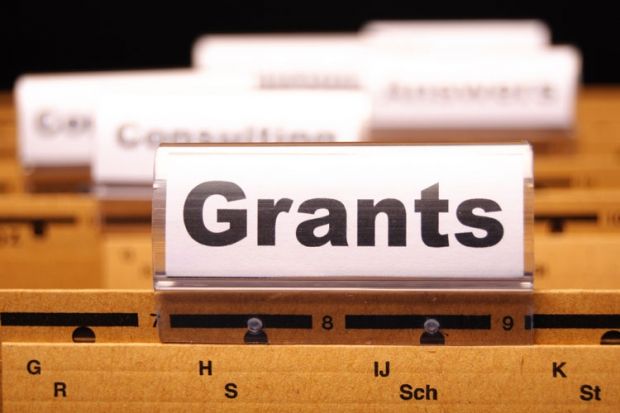Engineering and Physical Sciences Research Council/Royal Society
Royal Society-EPSRC Dorothy Hodgkin Fellows
This scheme supports outstanding scientists and engineers at an early stage of their career and is designed to help them progress to permanent academic positions. These are funded by the EPSRC
- Award winner: Cristina Manolache
- Institution: Imperial College London
- Value: £429,970
Virtual calculus
- Award winner: Beatriz Olmos Sanchez
- Institution: University of Nottingham
- Value: £420,550
Long-range interactions and collective dissipation in ultracold atomic lattices
National Institute for Health Research
Public Health Research Programme
- Award winner: Michael Daly
- Institution: University of Stirling
- Value: £147,020
Fuelling health equity? The impact of the winter fuel payment on the health of UK households
- Award winner: Suzanne Audrey
- Institution: University of Bristol
- Value: £972,682
The effectiveness and cost-effectiveness of an employer-led intervention to increase walking during the daily commute: cluster randomised controlled trial
- Award winner: Anna B. Gilmore
- Institution: University of Bath
- Value: £354,246
Understanding the impact of tobacco tax increases and tobacco industry pricing on smoking behaviours and inequalities
Efficacy and Mechanism Evaluation Programme
- Award winner: Keith Willett
- Institution: University of Oxford
- Value: £823,488
Platelet-rich plasma (PRP) in Achilles tendon rupture (ATR) healing
- Award winner: Robert John Moots
- Institution: University of Liverpool
- Value: £569,721
Optimal utilisation of biologic drugs in Behçet’s disease: a randomised controlled trial of infliximab vs alpha interferon, with genotyping and metabolomic profiling, towards a stratified medicines approach to treatment
Biotechnology and Biological Sciences Research Council
Research Grants
- Award winner: Michael Roberts
- Institution: Lancaster University
- Value: £558,249
Transgenerational immune priming in plants
Training Grants
- Award winner: Leonie Taams
- Institution: King’s College London
- Value: £102,126
Identifying the molecular basis for regulatory T cell-induced anti-inflammatory function of monocytes and macrophages
In detail

Wellcome Trust/Department for International Development
Award winner: Sterghios Moschos
Institution: University of Westminster
Value: £620,000
EbolaCheck
Researchers aim to develop a portable device that can test bodily fluids such as saliva for the presence of the Ebola virus and give results within 40 minutes, more than eight times faster than some lab techniques. Leading the project is the University of Westminster’s Sterghios Moschos, director of its Genomic Services Unit, working with Edward Wright, an Ebola expert and senior lecturer in medical microbiology. The team hope to have an inexpensive, battery-powered portable EbolaCheck device ready for use in the field by next May. “We will use robust technologies to develop a simple but effective tool to diagnose this deadly virus [that is] similar to a blood glucose meter and as reliable as hospital tests,” Dr Moschos said. EbolaCheck will use a technology provided by a Cambridge-based biotech firm on humanitarian grounds.
Register to continue
Why register?
- Registration is free and only takes a moment
- Once registered, you can read 3 articles a month
- Sign up for our newsletter
Subscribe
Or subscribe for unlimited access to:
- Unlimited access to news, views, insights & reviews
- Digital editions
- Digital access to THE’s university and college rankings analysis
Already registered or a current subscriber? Login

